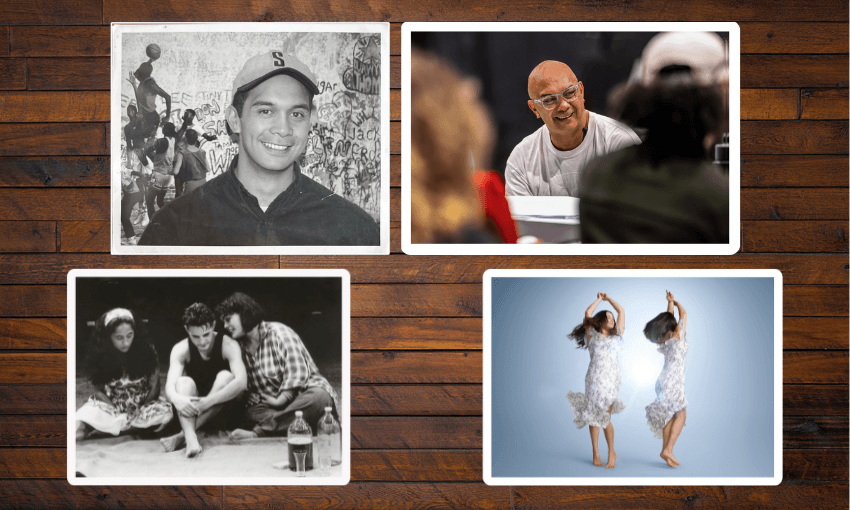After days of rumours, Mediaworks have removed Hannah Tamaki as a cast member for the 2020 season of Dancing with the Stars. Sam Brooks reflects on the controversy.
On Sunday, the NZ Herald gossip column Spy broke the news that Hannah Tamaki – wife of Destiny Church founder Brian and head of newly-founded political party Vision NZ – been cast in this year’s Dancing with the Stars. Two days later, following mass social media outrage, a fired political campaign manager, and an impassioned 7pm denunciation on their own network, MediaWorks released the following statement:
“Our announcement for this year’s Dancing with the Stars cast is scheduled for the end of March, however we are taking the unusual step to confirm Hannah Tamaki will not be part of that lineup.
“It was originally planned for Hannah to take part in the show. We now recognise this was a mistake and we apologise.
“We have seen a very strong reaction, some of which has been extreme and concerning and MediaWorks does not condone bullying. We would be failing in our duty of care to everyone if we continued as planned.
“We will be reviewing our decision making processes to make sure we get it right in the future.”
It’s not the first time MediaWorks hasn’t properly vetted or sense-checked their own casting. Look at the Married at First Sight controversy from last year, when an entire storyline had to be cut after revelations that one of the grooms had been arrested for domestic assault in the US. The difference here? Everything Hannah Tamaki has done, or said, had been widely available on the public record.
When the news broke on Sunday, I was hesitant to comment. The Tamakis generate news better than a printing press, and are experts at getting people to talk about them. How do you condemn what was at the time an alleged choice to cast her, without giving that news the oxygen of publicity? Still, Spy started a fire that MediaWorks had laid out for them, and social media provided the kindling. Everybody was talking about Hannah Tamaki come Monday morning, including us (with an excellent rundown of exactly why they shouldn’t cast her). Notably, very few people were commenting on the rumoured casting of well-known transgender personality Mary Haddock-Staniland, the first trans person to be on Dancing with the Stars since Georgina Beyer.
Controversy gets eyes, more surely and consistently than celebrities do. If you’ve got both in one place, you’ve got guaranteed views. There’s no doubt that MediaWorks was gambling on that controversy. There was probably even some sort of ‘Well, if we’ve got Hannah, then we have to get a LGBTQI person to balance it out’ conversation, which is the sort of thought process only possible if you’ve never been the subject of the hate that people like Hannah Tamaki spew. You don’t cast a racist and also a person of colour just to get both sides.
But MediaWorks miscalculated, clearly: Dancing with the Stars isn’t the place for controversy. It’s not the place to platform someone who has said intentionally hateful and hurtful things, whether because she believes them or because she knows it’ll get her another headline, another slot on another morning show. If she can translate that into a few more bucks for her church or her party, it’s a win.
As Kanoa Lloyd memorably said last night on The Project, “Please don’t bring that stuff to my place of work, to our place of work. And please don’t make her a hero in New Zealand’s living rooms.”
Like it not, reality television is political. One of the most charged moments I’ve seen on reality television is Marama Fox performing a Viennese Waltz to Maisey Rika’s ‘Tangaroa Whakamautai’ and then a Paso Doble in moko kauae, proudly wearing the colours of the tino rangatiratanga flag. A big, crowd-pleasing reality show provides a platform for people, ideas and images that people might not normally access. For so many people, that Marama Fox dance was probably the first time they’d seen that particular blend of culture and form.
Reality TV is a Trojan horse for so many conversations and ideas, and I believe in its power to start them. I don’t burden MediaWorks with the assumption of malice that would mean they wanted to implicitly endorse Tamaki’s ideas – but I will burden them with enough cravenness to want to give her a platform while ignoring the baggage she comes with.
It’s that duty of care line in the statement above that sticks. Who is MediaWorks talking about there? Is it talking about Hannah Tamaki, who has experienced the kind of social media onslaught that I wouldn’t wish on my worst enemy? Is it her rumoured fellow cast members, one of whom is a transwoman and others whom might be the kind of people Tamaki has publicly poured hate on? Or is it the viewers? The little gay kid who watched Suzy Cato with glee in 2018 and Laura Daniel with stars in his eyes in 2019, and this year would watch as the show he loves gave a platform to a woman who thinks he should burn in a very literal hell?
Review your decision-making processes, MediaWorks.
Better yet: Don’t gamble on hate. You’ll always lose.



